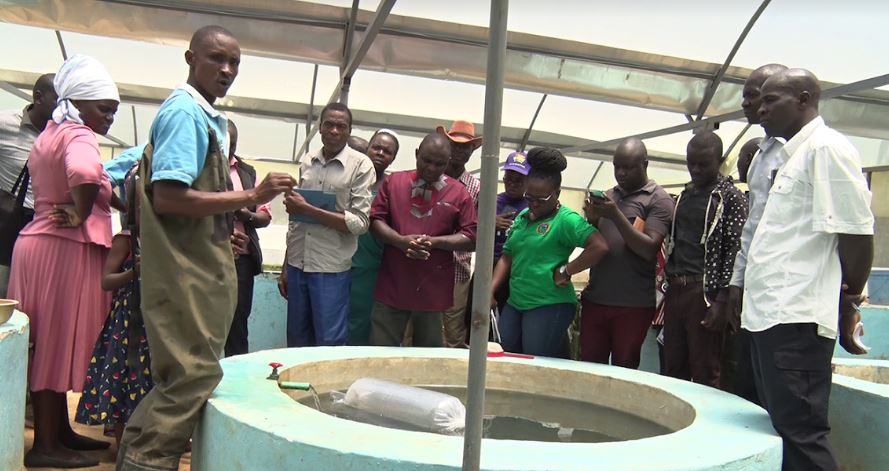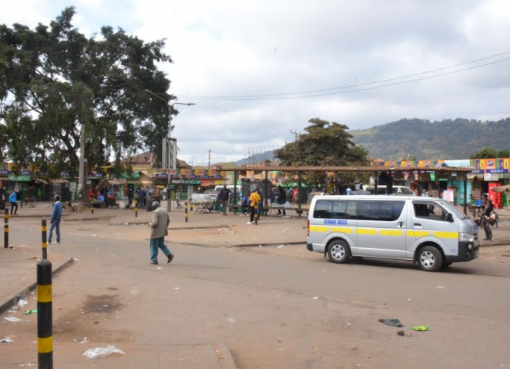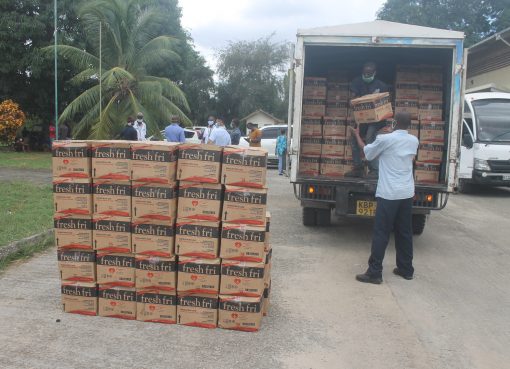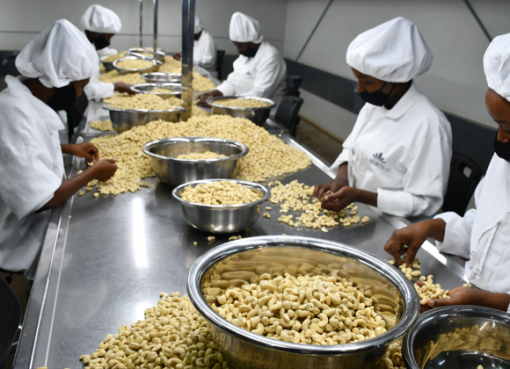The Three Quakers Friends Church in Kakamega will construct fish ponds in the compound to help interested members of the congregation learn about farming.
Church members have already started preparing the fish ponds in Matawa, Mumias Town, and Shibale churches.
The church members will then be supported in establishing fish ponds in their homes, with the one in the church being used as a model for knowledge dissemination.
The Kenya National Chamber of Commerce and Industry Chair, Kakamega Chapter, Wycliffe Kibisu, came up with the idea to start with his church members to establish fish ponds and engage in agriculture.
He says they will engage all churches in Kakamega to establish fish ponds in the church and disseminate the same knowledge to church members so they can do it at home.
He says a Christian needs three things to thrive: spiritual nourishment and social and economic empowerment, noting that the majority are not empowered economically.
Kibisu was speaking after leading a group of church members from Mumias on a learning tour at the biggest fish farm in Kakamega, Labed Cash Marine Enterprise.
The learning tour was necessary to equip the church members with the knowledge and skills to start fish farming, as they were already establishing the ponds and would soon introduce the fish.
They were taken through all stages of pond establishment, different types of ponds, types of fish, feeding, and how to produce low-cost feed by farming black soldier flies.
The director of Labed Cash Marine Enterprise, Laban Mwanzo, said the 17-acre farm has three types of fingerlings, which are tilapia, catfish, and ornamental.
He says he also ventured into black soldier fly farming at the farm to use them as feed for the fish and to also support farmers who may have challenges feeding their fish due to the high cost of fish feed.
“We thank the Kakamega Governor, who has supported farmers in agribusiness and ensured that farmers have planted different crops in larger numbers and also engage in fish farming,” he noted.
He urged the county government to assist in fencing the farm to control predators.
“We work closely with the county government, and we would also like to work closely with the national government because we sell the fingerlings we produce from the fish hatchery to farmers in Kakamega and those in other counties,” he disclosed.
From the fish farm, Mwanzo has been able to supply 2.5 million fingerlings to farmers in Kakamega, Homabay, Siaya, Kisii, Busia, and Kisumu counties this year through the Aquaculture Business Support Development Programme (ABDP).
The programme was meant to support small-scale farmers in Kenya to start fish farming to improve their lives and the nutrition status of rural households while building their incomes.
The farm has employed 20 youths who assist in establishing ponds and feeding the fish.
Mwanzo has also contracted 30 women who assist in selling fish from the farm to make a living for themselves.
He says they have also employed some youth to farm black soldier flies in their homes and sell them to the farm when they mature for use in feeding the fish and also to sell to other fish farmers across the county.
“We have also employed youth whom we give black soldier flies to raise in their homes. When they mature, we buy them to feed our fish and sell some to farmers who buy fingerlings from us,” he added.
Rodah Babuya from Friends Church Mumias thanked the chairman of KNCCI Kakamega for taking the initiative to support churches with knowledge on economic empowerment and the establishment of fish ponds.
She asked citizens across the country to support like-minded leaders who are ready to go a step further to empower citizens.
By Moses Wekesa





